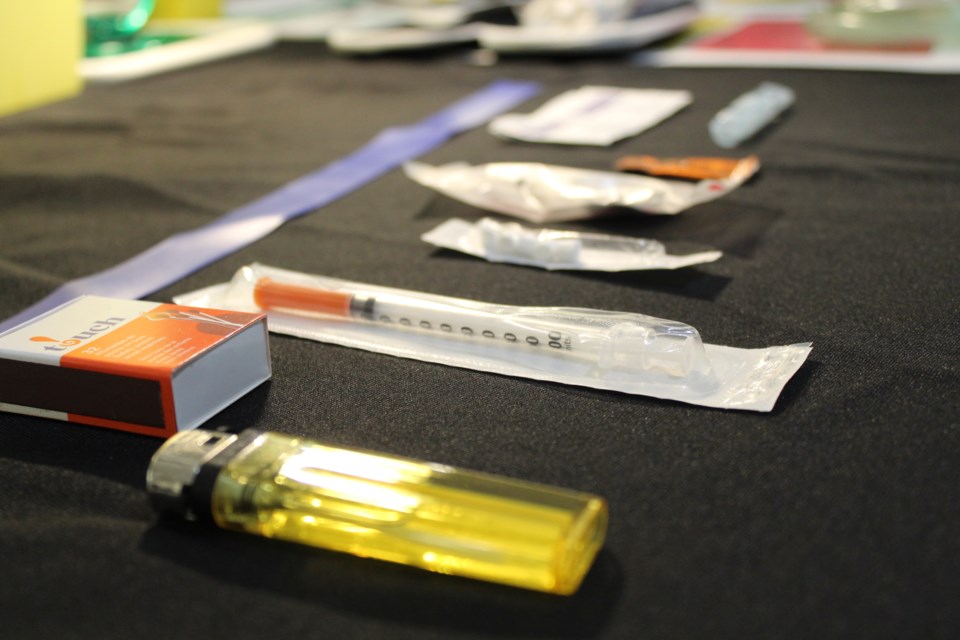The Regional Municipality of York works to address opioid addictions, but without the supervised consumption sites that have garnered some controversy.
York Region doesn't have any supervised consumption sites and will not be impacted by the province’s announcement last month to close those that are in close proximity to schools.
But the region's public health department is working to combat the harmful impacts of opioids in other ways.
Associate medical officer of health Dr. Kathryn Cleverley said while opening a supervised consumption site is considered a possibility in the region's 2024 opioid plan, in the meantime, public health works with clinical partners so that harm reduction tools such as safe needles are available to people.
“The purpose of harm reduction is really to keep people safe,” Cleverley said, adding that offering safe injection supplies “is beneficial to our health-care system. It reduces the impact.”
While the opioid action plan suggests exploring opportunities and the feasibility of having such a site in York Region, Cleverley said it is still in the early stages of exploration.
Still, York Region Public Health ensures safe supplies are ready for people, including at LOFT Community Services, the Access York Building and CAYR Community Connections in Newmarket, among others.
Concerns about opioid use have remained prevalent in the region. York Region had 81 overdose deaths in 2023, according to Public Health Ontario confirmed and preliminary data — the highest annual total in York Region's history. Although that number is not final, as 15 death cases from the last quarter are considered preliminary data, even the 66 cases in confirmed data would be higher than 2022 (60) and close to 2021 (71) and 2020 (69).
Cheverley said an issue is an increasingly toxic supply.
“Drugs are often mixed with other drugs or contaminants that can lead to stronger or different effects than someone anticipated, including death,” she said. “This risk of toxicity can affect anyone who uses unregulated drugs, regardless of how often they use. Harm reduction initiatives like awareness and broad availability of naloxone can help reduce the impact of drug toxicity.”
There has been at least one attempt to bring a supervised consumption site to York Region. Psychology Works in Markham applied to open one in 2020.
Dr. Dawn DeCunha said what she wanted was a specialized type of supervised consumption site that would allow her to use certain psychedelic treatments like LSD, with her clinic specializing in treatments like ketamine therapy.
But she said that was an uphill battle that she ultimately abandoned, adding research does back her up and she believes in the potency of such treatments.
DeCunha said she supports the idea of supervised consumption sites being away from schools and that is a fair concern. But she said she does support the sites as a whole and they do save lives.
“It’s like a whole community is affected,” she said. “I don’t want pushback from parents saying, ‘Close these sites because it’s close to my child’s playground.’ That’s a recipe for disaster.”
Site location would be carefully considered in any safe consumption sites in York Region, Cleverley said.
Asked about people who may be concerned by the giving away of safe consumption supplies regardless, Cleverley said it is important to keep in mind that addiction can impact anyone.
“Drug use and issues with opioids and addictions doesn’t discriminate in terms of who you are,” she said. “These people might be your neighbours, your family, your friends, whether or not you are aware … It’s really important for us — specifically from York Region Public Health but also from the community in general — to support people”
Locally in Barrie, applications for what the province refers to as a Consumption and Treatment Services (CTS) facility were submitted to Health Canada and the Ontario Ministry of Health on Oct. 7, 2021, for a facility at 11 Innisfil St., near downtown Barrie.
The Barrie application came from the Simcoe County branch of the Canadian Mental Health Association (CMHA). However, the local application was rescinded in late June after what health officials said was a “complete lack of response from the province’s Ministry of Health.”
You can find information on opioids and safe supply locations at york.ca/opioids.



